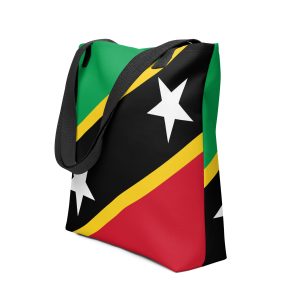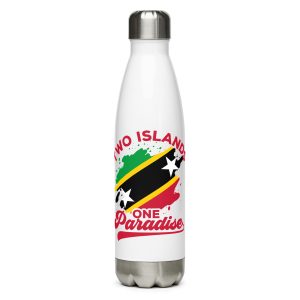Language and Dialects of St. Kitts and Nevis
Language is a vital component of cultural identity, and in St. Kitts and Nevis, the linguistic landscape reflects the islands’ rich history and diverse cultural influences. The primary language spoken is English, a legacy of British colonial rule, but the islands also feature a vibrant Creole language infused with African, European, and indigenous elements. This blend of languages provides a unique linguistic tapestry that connects the people of St. Kitts and Nevis to their heritage and each other. This article offers an overview of the languages and dialects spoken on the islands, highlighting the influence of English, Creole, and African languages, along with examples of local expressions and phrases.
The Dominance of English
1. English as the Official Language: English is the official language of St. Kitts and Nevis, used in government, education, media, and formal communication. The widespread use of English is a direct result of British colonization, which began in the early 17th century and lasted until the islands gained independence in 1983.
-
Educational System: English is the medium of instruction in schools, from primary education through higher education. The curriculum includes English literature, grammar, and composition, ensuring that students are proficient in both written and spoken English.
-
Government and Law: English is used in all official documents, legal proceedings, and governmental operations. It is also the language of the constitution, laws, and public administration, reinforcing its status as the primary language of the islands.
2. British Influence on Language: The version of English spoken in St. Kitts and Nevis has been shaped by British English, particularly in its vocabulary, spelling, and pronunciation. However, over time, the local dialects have developed their own distinct features, influenced by the islands’ unique cultural and historical context.
- Examples of British Influence:
- Vocabulary: Words like “lorry” (truck), “flat” (apartment), and “holiday” (vacation) are examples of British English terms that are commonly used in St. Kitts and Nevis.
- Spelling: British spelling conventions, such as “colour” instead of “color” and “favour” instead of “favor,” are typically followed in formal writing.
- Pronunciation: While the pronunciation of English in St. Kitts and Nevis is generally closer to British English, it has been adapted over time, incorporating elements of Creole and other influences.
The Role of Creole (Kittitian Creole English)
1. What is Kittitian Creole? Kittitian Creole, also known as “Kittitian” or “Patwa,” is an English-based Creole language spoken by many people in St. Kitts and Nevis. It developed during the colonial period as a means of communication between enslaved Africans, European colonizers, and indigenous peoples. Kittitian Creole is a linguistic reflection of the islands’ history, blending elements from African languages, English, and other European languages.
- Creole Grammar and Vocabulary: Kittitian Creole features simplified grammar compared to standard English, often omitting articles and auxiliary verbs. It also includes a rich vocabulary drawn from African languages, English, and French, among others.
- Example: The phrase “Mi a go a town” in Creole translates to “I am going to town” in English. The use of “mi” for “I” and “a go” for “am going” illustrates the Creole structure.
2. The Influence of African Languages: The African influence on Kittitian Creole is profound, particularly in its vocabulary, pronunciation, and rhythm. Enslaved Africans brought to St. Kitts and Nevis during the transatlantic slave trade contributed their languages and speech patterns to the development of Creole.
- African Words in Creole: Several words in Kittitian Creole have African origins, reflecting the linguistic heritage of the islands’ African ancestors.
- Examples:
- “Nyam” (to eat) – Derived from the Akan language of West Africa.
- “Duppy” (ghost or spirit) – From the Twi language of Ghana.
- “Pickney” (child) – From the Portuguese word “pequeno” (small), but also influenced by African usage.
- Examples:
3. Social and Cultural Significance of Creole: Kittitian Creole is more than just a language; it is an essential part of the cultural identity of the people of St. Kitts and Nevis. While English is used in formal settings, Creole is often spoken in casual conversations, storytelling, music, and cultural events, serving as a marker of community and heritage.
- Expression of Identity: Speaking Creole is a way for Kittitians and Nevisians to express their connection to their cultural roots. It is used in everyday communication among family and friends and is an important medium for transmitting oral traditions and folklore.
- Creole in Music and Art: Kittitian Creole is frequently used in calypso and soca music, as well as in local poetry and plays. The language’s rhythm and expressive quality make it ideal for artistic expression, allowing performers to connect with their audiences on a cultural level.
Local Expressions and Phrases
Understanding the local expressions and phrases used in St. Kitts and Nevis provides valuable insights into the linguistic diversity of the islands and helps students appreciate the unique flavor of the Kittitian and Nevisian dialects.
1. Common Expressions in English and Creole:
- “Wha’ gwan?” – A common greeting meaning “What’s going on?” or “How are you?”
- “Mek we go!” – Translates to “Let’s go!” This phrase is often used to invite someone to join in an activity.
- “Me noh know” – Means “I don’t know.” The use of “me” for “I” is typical in Creole.
- “Big up!” – A phrase meaning “Give respect” or “Props to you!” It’s a term of encouragement or acknowledgment.
- “Yuh good?” – A way of asking “Are you okay?” or “How are you?” It’s a casual expression of concern or interest.
- “Soon come” – Means “I’ll be back soon” or “I’ll be there soon.” This phrase reflects the laid-back attitude often associated with Caribbean culture.
2. Proverbs and Sayings: Proverbs are a significant part of the oral tradition in St. Kitts and Nevis, often conveying wisdom, values, and humor.
- “Monkey know which tree to climb.” – Meaning: People are aware of their strengths and weaknesses and know where they can succeed.
- “You can’t dance at two weddings.” – Meaning: You can’t do two things at once; it’s essential to focus on one task or commitment.
- “Every mickle mek a muckle.” – Meaning: Small contributions add up to something significant; similar to “Every little bit helps.”
Preservation and Evolution of Language
1. The Future of Kittitian Creole: While English dominates formal communication in St. Kitts and Nevis, Kittitian Creole continues to thrive as a spoken language in everyday life. Efforts to preserve and promote Creole are crucial for maintaining the cultural heritage of the islands.
- Cultural Initiatives: Local organizations and cultural groups work to document and teach Kittitian Creole, ensuring that it remains a vital part of the islands’ identity. Educational programs, music, literature, and media in Creole contribute to its preservation and evolution.
2. Language in Education: There is a growing recognition of the importance of including Kittitian Creole in the educational system, not just as a subject of study but as a medium of instruction and cultural education.
- Bilingual Education: Some schools are beginning to explore bilingual education models that incorporate both English and Creole, helping students to become proficient in both languages and appreciate their cultural significance.
3. Influence of Globalization: Globalization and the spread of digital media are influencing the languages spoken in St. Kitts and Nevis. While this brings exposure to new languages and cultures, it also presents challenges for preserving local dialects and languages.
- Balancing Act: The challenge for St. Kitts and Nevis is to balance the benefits of global communication with the need to preserve and nurture their unique linguistic heritage. By embracing both English and Creole, the islands can maintain their cultural identity while engaging with the wider world.
Final Thoughts
The linguistic diversity of St. Kitts and Nevis is a testament to the islands’ rich cultural history and the blending of different peoples and traditions over centuries. English, with its British colonial roots, serves as the official language, while Kittitian Creole, influenced by African languages and European colonization, remains a vibrant expression of the islands’ identity. Understanding the languages and dialects spoken in St. Kitts and Nevis not only enhances communication but also deepens appreciation for the cultural heritage of these Caribbean islands. As the people of St. Kitts and Nevis continue to navigate the challenges of globalization, the preservation of their linguistic heritage will remain essential to maintaining their unique cultural identity.
Educational Resources
- Historical Documents
- Language & Dialects
- Quizzes & Activities
- Teacher Resources
Disclaimer
The information provided on stkittsnevisflag.com is for general informational purposes only. While we strive to provide accurate and up-to-date information, we make no warranties or representations of any kind, express or implied, about the completeness, accuracy, reliability, suitability, or availability of the information contained on this website. Any reliance you place on such information is therefore strictly at your own risk.
stkittsnevisflag.com will not be liable for any loss or damage, including without limitation, indirect or consequential loss or damage, or any loss or damage whatsoever arising from loss of data or profits arising out of, or in connection with, the use of this website.
We encourage all users to verify any information found on this site before relying on it. If you find any incorrect or outdated information, please contact us at info@stkittsflag.com so we can make the necessary corrections.




